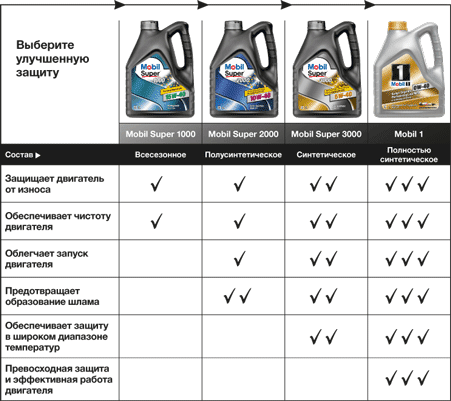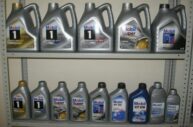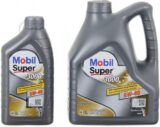
Which oil is better than synthetic or semi-synthetic
Content
Buying your first car is always accompanied by a number of questions - both simple and complex. What brand of gasoline should be filled in, what pressure is recommended to maintain in the front and rear tires, how often to change the engine oil and oil filter.

When replacing or needing to top up engine oil, the question arises - which one to choose?
Despite the fact that it performs the same functions in an internal combustion engine:
- protects against overheating and wear of the part;
- protects against corrosion;
- reduces the force of friction between touching parts;
- removes products of fuel combustion and engine wear;
How motor oils were created
Car engine operating conditions are not always stable. It heats up, then cools down, stopping and starting again. The number of revolutions and the speed of friction change. The presence of oil in it is designed to ensure the safety of parts in any functional state. At the same time, the physical and chemical properties of the engine oil must be stable and not subject to changes.
The first motor oil was discovered before 1900, when stuck steam engine valves were lubricated with crude oil. The valves were released, their course became free and smooth. However, natural mineral oil has one significant drawback - at low temperatures and long operation, it begins to thicken. Starting the engine in such conditions becomes a problem, the friction force increases, parts wear out faster. Therefore, over time, the question arose of creating a lubricant capable of maintaining its properties in a variety of conditions.

The first synthetic oil developed was used in aviation. Then, at -40 degrees in airplanes, ordinary mineral oil simply froze. Over time, technology has changed, production costs have dropped, and synthetic oils have become widely used in the automotive industry.
In order to understand which oil is better than synthetics or semi-synthetics, consider their main properties.
Synthetic oils
The name of the synthetic motor oil speaks for itself. It is created artificially in the laboratory as a result of numerous complex chemical reactions. The base of synthetic oil is crude oil, which is processed in laboratories literally to molecules. Various additives are added to the base to protect it from thickening and protect the engine from wear. In addition, thanks to a refined formula, synthetic oils are free of impurities that build up inside the engine.
Consider the benefits of synthetics:
- Wear protection during friction. In high-power motors, parts move at high speeds. At a certain point, mineral oil begins to lose its protective properties. The chemical composition of synthetics does not change;
- Synthetics do not thicken. This is how it differs from mineral oil, which does not withstand low temperatures and long downtime; Motor protection against high temperatures. During operation, the car engine heats up to 90 -100 degrees. Sometimes the situation is complicated by the hot weather. Synthetic oils do not degrade or evaporate .;
- The use of synthetics guarantees engine cleanliness. Synthetics are good in that all impurities are removed from its composition, so there will be no sludge deposits on the walls and parts of the motor - an obligatory decomposition product of mineral oils;
- Protection of turbocharger elements. Modern cars are often equipped with turbochargers. This leads to even more revolutions made by the shaft. As a result, high friction speed and temperature, from the effects of which synthetics protect.
Disadvantages:
- High price;
- The complexity of the search. In cases where the manufacturer provides for the use of a special synthetic oil for a particular car brand.

Semi-synthetic oil
Rather, it can be called semi-mineral, since the base is mineral oil. Synthetic oil is added to it in a 60/40 ratio. As a rule, semisynthetics are poured into engines with high mileage when high oil consumption is observed. Semi-synthetics are also recommended for earlier versions of motors.
Consider some of the benefits of semi-synthetics:
- Low cost. Compared to synthetic oils, it costs several times cheaper and is easier to get when needed .;
- Better engine protection compared to mineral oils;
- The best efficiency in regions with a mild climate. Such oil will perfectly retain properties in mid-latitudes.
Disadvantages - possible decomposition during operation in extreme temperatures and conditions.
Synthetics and semisynthetics compatibility
It should be said right away that it is not recommended to mix and add oils belonging to different manufacturers. They may have a different chemical composition of the additives, and it is not known what the reaction will be between them.

Let's highlight several rules for changing oil or mixing it:
- When switching from synthetics to semi-synthetics and vice versa, as well as when changing the manufacturer, it is recommended to flush the engine. This will rid you of any old oil residues in the engine .;
- It is allowed to mix synthetic and semi-synthetic oils from the same manufacturer.
Oil selection rules
- Manufacturer's recommendations. As a rule, the manufacturer has foreseen what kind of oil needs to be filled .;
- Focusing on what was flooded before. In the case of buying a used car, it is better to ask what kind of oil the owner filled in;
- Oil selection based on environmental conditions. Each type of oil is further subdivided according to the degree of viscosity. The selection can be based on the expected ambient temperature.
Questions and answers:
What is better to pour synthetics or semi-synthetics into the engine? Compared to synthetics, semi-synthetics are inferior in a number of indicators. But if the car manufacturer recommends using semi-synthetics, it is better to fill it.
What is the difference between synthetic oil and Semi-synthetics? Molecular composition, on which the technical characteristics of the lubricating fluid depend. Synthetics have the best performance, thanks to which they provide the motor with reliable lubrication in extreme conditions.
Can synthetics be poured into an old engine? If the engine has never been flushed before, then the deposits will begin to flake off and clog the channels, preventing lubrication and cooling of the internal combustion engine. Also, a strong oil leak can form through worn seals and oil seals.
Why is synthetics better? It has a stable viscosity (more fluid than mineral water or semi-synthetics) over a wide temperature range. Under heavy load, the motor remains stable, does not age so quickly.

